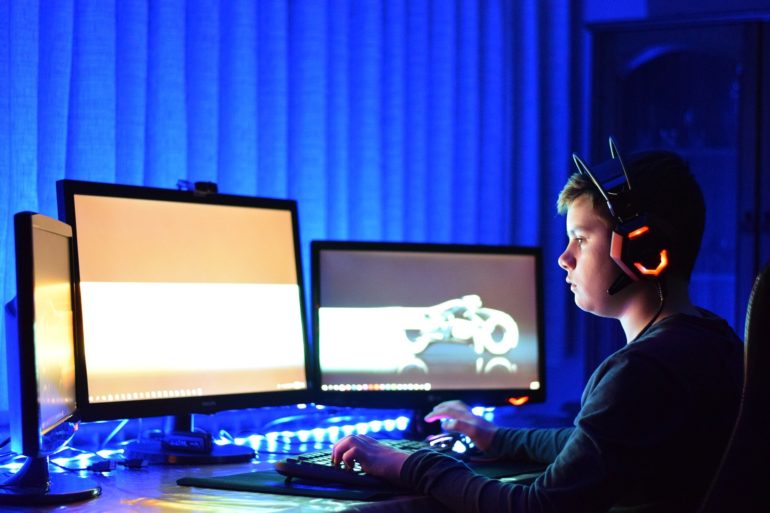Seventy seven percent of young people (aged 8 – 17) feel that being online has been a more important part of their life in 2020 than ever before, according to a new study.
Today is Safer Internet Day and to mark the occasion the UK’s Safer Internet Centre released a new study on children’s online activity during the pandemic.
This year they are helping people from around the world tackle fake news and misleading content on the internet.
CJS News spoke to Jade Rodd, a parent to three boys, who said: “They live, breath and sleep online.
“They are all different ages so it’s difficult to have that happy medium with restrictions. The first thing my youngest does when he wakes up is to go online. Whether it’s gaming or schooling. He’s never been like this before.”
73% of the young people that were surveyed feel that being online has helped them through the difficult pandemic and lockdowns.
Luli, a 10-year-old who has been studying from home during the lockdown, said: “I’ve been online a lot more for Zoom meetings and Google classroom. Obviously, we can’t see our teachers so it’s been good for that. I also have virtual sleepovers with my friends.”
The research also found that over half (51%) of young people surveyed are encountering more misleading content online now than in the previous year.
Rodd explained that she finds it hard to monitor her children’s online activity.
She said: “They are all so tech-savvy. They know how to delete all their internet history. Even when I’m going back to have a look, all their activity is wiped.”
Internet Matters, a charity which helps parents and carers to create safe spaces online, says it is important that parents get involved in their children’s online lives.
A spokesperson for the charity said: “I can appreciate there is a lot going on for parents. There is so much to do already. But, if they can, they should engage and be a part of their child’s digital life. This is better than just waiting for when they have a problem.
“They will then be more likely to speak to you because it’s not highlighting something as taboo. Children won’t have to worry about the ramifications these conversations might have. It will just be part and parcel of having that open dialogue. They will feel more confident knowing that you know what’s going on and having that conversation. Whether it’s a positive or negative experience.”
The UK Safer Internet Centre has created a Young People’s Charter in response to some of these issues.
They are calling on the government to hold social media platforms to account and create better online protection for children.
The Minister for Digital and Culture Caroline Dinenage said: “We are playing our part in government, and are hard at work preparing our upcoming Media Literacy Strategy and Online Safety Bill.
“This will equip young people with the skills to be safe online and put a new duty of care on online platforms to tackle dangerous disinformation.”

